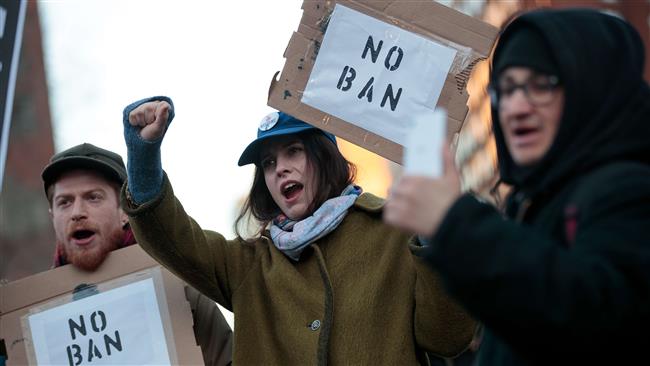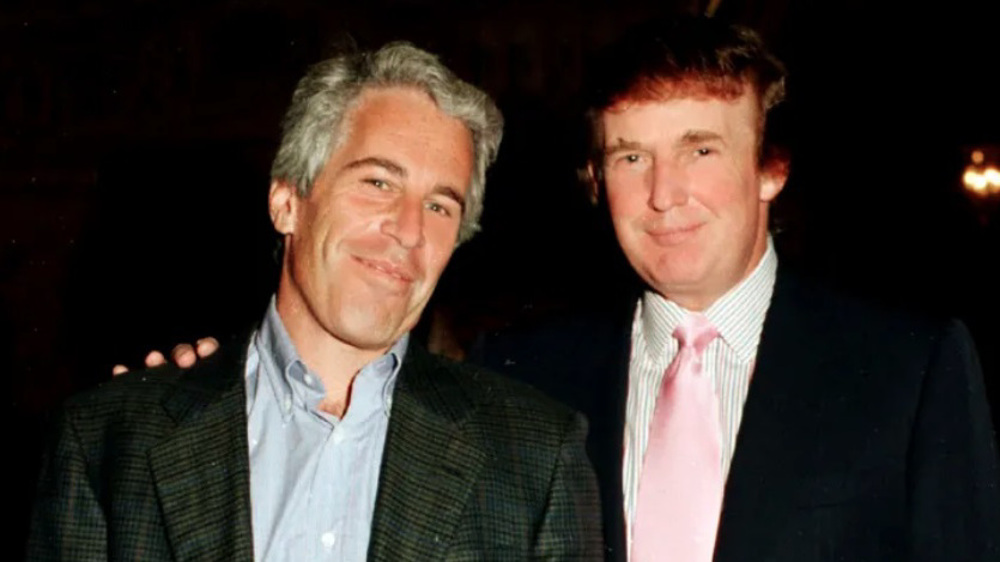Texas leading 13-state coalition backing Muslim ban
Led by Texas, 13 US states have formed a coalition to defend President Donald Trump’s controversial travel ban against people from several Muslim countries.
The ban, which was introduced in late January and was revised earlier this month after facing legal issues, barred citizens of Iran, Somalia, Sudan, Syria, Yemen and Libya from obtaining US visas in an attempt to keep what Trump called “radical Islamic terrorists” out of America.
Both the original and the revised versions of Trump’s directive were brought to a halt upon legal action by states like Washington, which took the matter to the 9th Circuit Court and convinced the judges that the ban discriminated against Muslims based on their religion.
This prompted Texas Attorney General Ken Paxton, along with 11 other state attorneys general and the governor of Mississippi, to file a court brief with the 4th Circuit Court of Appeals in Richmond, Virginia, on Monday in support of the ban.
Alabama, Arizona, Arkansas, Florida, Kansas, Louisiana, Montana, Oklahoma, South Carolina, South Dakota, and West Virginia were the other states supporting the bid.

In the court brief, the 13 states argued that they had a “significant interest in protecting their residents' safety.”
“Congress delegated to the Executive Branch significant authority to prohibit aliens' entry into the country, and the challenged Executive Order is a lawful exercise of that authority,” the brief stated. “Plaintiffs' lawsuit presents no basis to enjoin the order.”
In a separate statement, Paxton said Trump’s new ban had addressed the court’s concerns and was “a vital step in securing our borders.”
“It is imperative we find a way to better screen refugee applicants to maintain national security. The president is fulfilling his solemn duty to protect Texans and all Americans,” his statement read.
Read More:
- Trump issues new travel ban on Muslims
- No threat from banned Muslim states: US intel
- Judge blocks Trump travel ban nationwide
Iraq was also included in the original order. However, the Trump administration dropped the Arab country’s name in the new measure, arguing that Baghdad was playing a key role in eliminating terrorism.
The new measure hoped to address the shortcomings of the preceding one by removing an indefinite entry ban against Syrian refugees and excluding legal permanent residents, or green card holders.
Trump has promised to challenge the travel ban block at the Supreme Court.
MSF slams Israeli actions, baseless allegations
Hamas slams Israel for pursuing 'Judaization' agenda in occupied West Bank
President: Iran will stand firm against threats, continue path of martyrs
VIDEO | Health concern grows as leptospirosis threatens displaced families in Gaza
VIDEO | Iran in 2025: From US and Israeli aggressions to diplomatic and scientific achievements
London mayor vows to stand up to Trump’s ‘bile’, bullying
VIDEO | Press TV's news headlines
Yemen military chief: Support will continue until Palestine liberated










 This makes it easy to access the Press TV website
This makes it easy to access the Press TV website